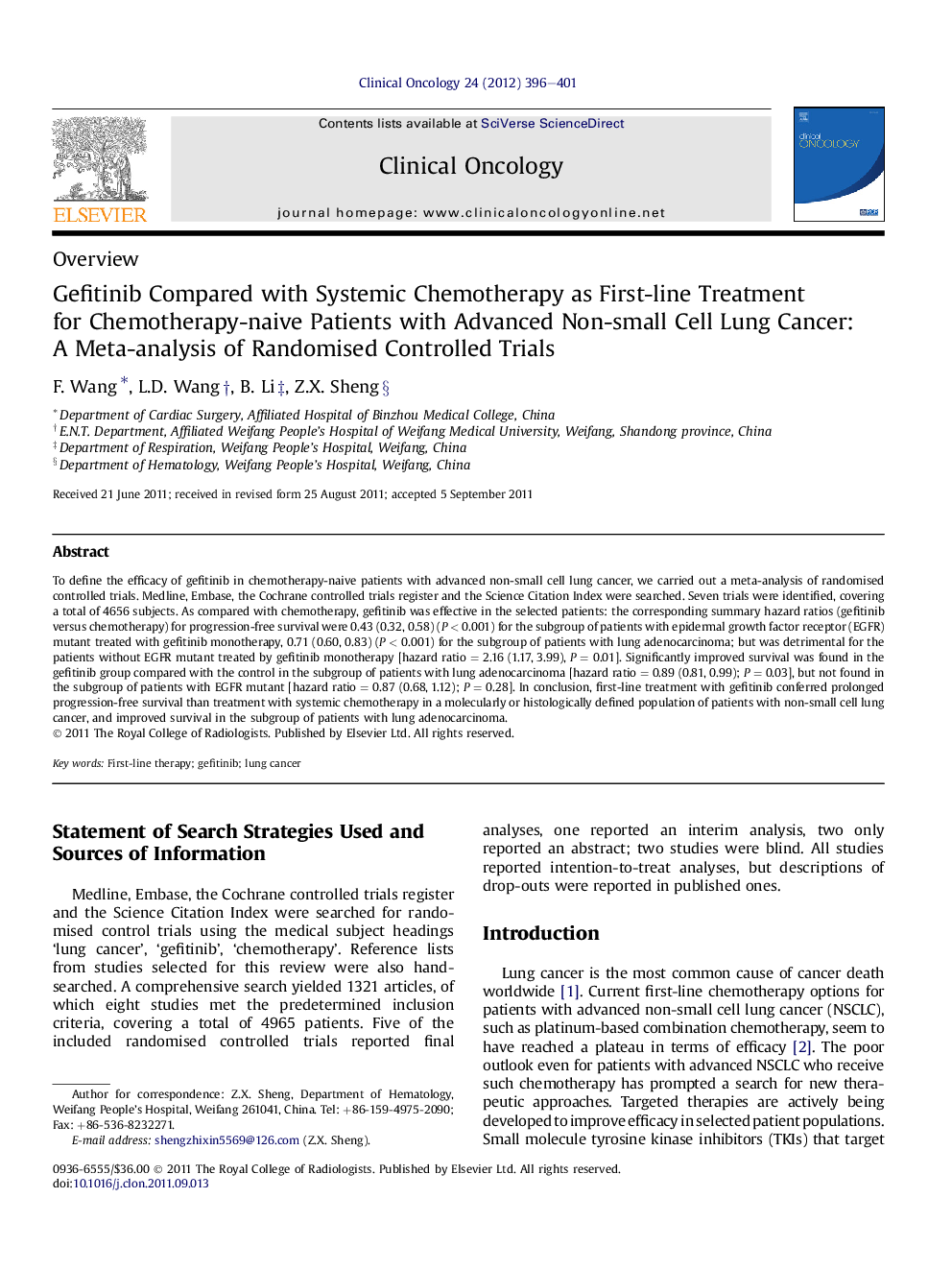| Article ID | Journal | Published Year | Pages | File Type |
|---|---|---|---|---|
| 5699596 | Clinical Oncology | 2012 | 6 Pages |
Abstract
To define the efficacy of gefitinib in chemotherapy-naive patients with advanced non-small cell lung cancer, we carried out a meta-analysis of randomised controlled trials. Medline, Embase, the Cochrane controlled trials register and the Science Citation Index were searched. Seven trials were identified, covering a total of 4656 subjects. As compared with chemotherapy, gefitinib was effective in the selected patients: the corresponding summary hazard ratios (gefitinib versus chemotherapy) for progression-free survival were 0.43 (0.32, 0.58) (P < 0.001) for the subgroup of patients with epidermal growth factor receptor (EGFR) mutant treated with gefitinib monotherapy, 0.71 (0.60, 0.83) (P < 0.001) for the subgroup of patients with lung adenocarcinoma; but was detrimental for the patients without EGFR mutant treated by gefitinib monotherapy [hazard ratio = 2.16 (1.17, 3.99), P = 0.01]. Significantly improved survival was found in the gefitinib group compared with the control in the subgroup of patients with lung adenocarcinoma [hazard ratio = 0.89 (0.81, 0.99); P = 0.03], but not found in the subgroup of patients with EGFR mutant [hazard ratio = 0.87 (0.68, 1.12); P = 0.28]. In conclusion, first-line treatment with gefitinib conferred prolonged progression-free survival than treatment with systemic chemotherapy in a molecularly or histologically defined population of patients with non-small cell lung cancer, and improved survival in the subgroup of patients with lung adenocarcinoma.
Related Topics
Health Sciences
Medicine and Dentistry
Oncology
Authors
F. Wang, L.D. Wang, B. Li, Z.X. Sheng,
